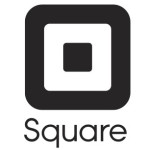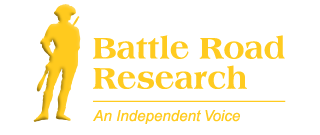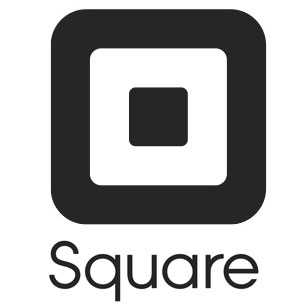Category: IPO Research
Mimecast: Keeping Corporate Email Safe from Attack
 Founded in 2003 by Peter Bauer, currently CEO and Chairman, and Neil Murray, currently Chief Technology Officer, and based in London, the UK, Mimecast (NASDAQ: MIME) is a leader in cloud-based email management, including data security and archiving. The company serves over 18,000 customers in a broad range of industries, and added 1,800 new customers in the recently concluded March 31 quarter. Consensus estimates call for revenue of $173 million in fiscal year 2017 (ending March 31), which implies a 22 percent increase over the prior year, while EPS estimates suggest a loss of $0.05 per share, which would compare to a loss of $0.07 in FY’2016.
Founded in 2003 by Peter Bauer, currently CEO and Chairman, and Neil Murray, currently Chief Technology Officer, and based in London, the UK, Mimecast (NASDAQ: MIME) is a leader in cloud-based email management, including data security and archiving. The company serves over 18,000 customers in a broad range of industries, and added 1,800 new customers in the recently concluded March 31 quarter. Consensus estimates call for revenue of $173 million in fiscal year 2017 (ending March 31), which implies a 22 percent increase over the prior year, while EPS estimates suggest a loss of $0.05 per share, which would compare to a loss of $0.07 in FY’2016.
Mimecast debuted on the NASDAQ on November 19, 2015 in a 7.8 million share IPO priced at $10 per share that enabled the company to raise about $70 million. The deal was led by Goldman Sachs, Barclays Capital, Jeffries, RBC Capital Markets, and Oppenheimer and Company. At a recent share price of $9, Mimecast’s market cap is roughly $475 million.
Mimecast offers a wide range of archiving and data security services that enhance corporate email systems with additional features for storing and retrieving emails, as well as an additional layer of protection for corporate email users, such as those running Microsoft Office 365. Roughly 60 percent of revenue is derived from channel partners, rather than a direct sales force. The company’s customers are based principally in three countries, with the U.K. accounting for 42 percent of sales, the US 38 percent, and South Africa 19 percent.
The company’s email archiving and threat protection services are derived from a broad range of industries, including legal services (17 percent), professional, scientific and technical services (14 percent), manufacturing (13 percent), and finance and insurance (12 percent), with no customer accounting for more than one percent of sales. The company claims a greater than 90 percent plus retention rate among customers for its services. Mimecast competes against a broad range of competitors, including Microsoft through its Exchange Server offering, Barracuda Networks (NYSE: CUDA), Symantec (NASDAQ: SYMC), and Proofpoint (NASDAQ: PFPT).
Mimecast’s net cash position post IPO is $126 million, and the company is generating cash from operations. To learn more about how Mimecast screens relative to its software peers, please contact Battle Road Research.
Square Payments – Helping Companies Get Squared Away
 Square (NYSE: SQ), a mobile payment and financial services company, is another new addition to our Internet sector coverage. Founded in February 2009 by Jack Dorsey and Jim McKelvey, Square is headquartered in San Francisco, California, and led by Chairman, CEO, and president Jack Dorsey, who also serves as CEO of publicly-traded Twitter (NYSE: TWTR), which he also co-founded. Consensus estimates call for revenue of $1.2 billion and a loss of $0.53, followed by a projected $1.5 billion in revenue for 2016, and a loss of $0.25 per share.
Square (NYSE: SQ), a mobile payment and financial services company, is another new addition to our Internet sector coverage. Founded in February 2009 by Jack Dorsey and Jim McKelvey, Square is headquartered in San Francisco, California, and led by Chairman, CEO, and president Jack Dorsey, who also serves as CEO of publicly-traded Twitter (NYSE: TWTR), which he also co-founded. Consensus estimates call for revenue of $1.2 billion and a loss of $0.53, followed by a projected $1.5 billion in revenue for 2016, and a loss of $0.25 per share.
Square debuted on the New York Stock Exchange on November 19, 2015 at a price of $9.00 per share, below its expected range of $11-13 per share, and well-below its most recent private financing round, which then valued the company at $15 per share. The offering featured 27 million shares, with 25.6 million coming from the company, and the remaining 1.4 million coming from shareholders. At a recent share price of $10.40, Square’s market cap is roughly $3.7 billion, the result of including dual share classes, in contrast to Twitter, which features only common stock, and not super-voting rights that disenfranchise common stock owners. Goldman Sachs, Morgan Stanley, and J.P. Morgan were lead book-running managers for the offering, all three of which led the Twitter IPO. Barclays, Deutsche Bank, Jefferies, RBC Capital, and Stifel as book-running managers, and LOYAL3 and SMBC Nikko as co-managers, rounded out the members of the underwriting group.
Square’s mission is to enable everyone with a mobile device to accept credit and debit cards anytime and anywhere. Square’s products help their customers, or sellers, begin, manage, and grow their companies. Sellers can see which of their products are selling the most and create and engage a loyal base of customers. The technology and design focus that Square employs helps them create simple and easy to use products.
Square’s top product is Square Register, which allows sellers to accept offline credit and debit cards on their smart phones and tablets. This product works in tandem with Square Reader, which is the device that the credit and debit cards are swiped onto. Square Reader plugs into the audio jack of smart phones and tablets. These were Square’s first two products. Square provides a free software app, along with affordable—often free—hardware to make smart phones and tablets point of sale solutions in mere minutes. While the vast majority of Square’s revenue comes from the United States, its products are also available in Canada and Japan.
While Square initially targeted small companies, it currently is aiming at businesses of all sizes. Square’s services are applicable to every type and size of business, ranging from taxi cabs to restaurants to law firms to landscaping companies to retail stores. Post-IPO, Square has a strong balance sheet, with well over $300 million in cash and no debt, though it is unclear at this juncture how long the company will have the luxury to operate at substantial losses and begin to deplete its cash position. To learn more about how Square ranks relative to other internet IPOs of the last several years, please contact Battle Road Research.


